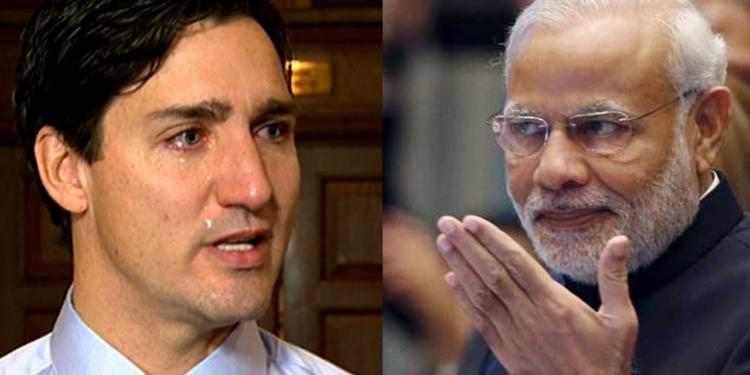‘Whoever controls the Indian Ocean will dominate Asia, the destiny of the world will be decided on its waters.’ These famous words are attributed to the maritime strategist Alfred Thayer Mahan, who made this prophetic statement more than a century ago. Prophetic, as these words now define the ongoing power politics in the Indian Ocean as well as the Indo-Pacific region. Due to its geo-economic, geopolitical, and geostrategic importance, the Indo-Pacific has emerged as the centre of gravity in world politics for the 21st century.
It’s a region that covers “more than 50% of the world’s population, 3,000 different languages, several of the world’s largest militaries, and two of the three largest economies. Looking at its growing significance, many world powers are now seeking to pivot towards this region. Even Canada considers itself a part of this geographical construct and wishes to actively engage in it. But the proactive role of Canada in this region is obstructed by various challenges that it constantly chooses to ignore… And due to that this effort by Canada is bound to fail…
The federal government has recently announced a new Indo-Pacific strategy aimed at increasing Canada’s diplomatic and economic presence in the region. The strategy states that Canada sees relations with Indo-Pacific countries as vital to its national security as well as its economic and environmental goals. It further adds that Canada will increase its military presence in the region to counter rising threats.
Fair enough, the long-sought strategy could be a major step to increase Canada’s presence on the global stage. But it will not succeed if Canada does not fix and address the various challenges. What are the challenges?
Read more: By getting thrashed by Xi at the G20 Summit, Trudeau has shamed Canada internationally
Let’s start with allies.
Every country seeking to exert influence in this region will prioritize its relations with one country. Which country is it? It’s India. India is currently given significant attention in the Indo-Pacific, which highlights it as a key performer in the multipolar region and a contributor of more than half of the world’s population and Gross Domestic Product (GDP). Countries consider India’s position in the Indo-Pacific to be crucial.
But how is Canada engaging with India? India- Canada relations have hit their lowest point in the past few years. Canada seems to have lost India as a significant ally in the Asian continent. The Indian government has constantly raised concerns with Canadian officials over a “sharp increase” in hate crimes, sectarian violence, and anti-India activities. But there has been no positive action by the other side. Look at the latest incident. Despite India raising several alarms, over 100,000 Canadian Sikhs took part in voting for the Khalistan Referendum in Brampton, Ontario, on September 19, which was organized by the pro-Khalistani group Sikhs For Justice (SFJ). This referendum happened with Canadian officials’ approval. As long as Canada keeps ignoring India’s crucial concerns, the relations will stay constrained, and there won’t be any crucial engagement by both sides in the Indo-Pacific region.

Moving on to the second challenge- military
Canada has vowed to increase its military presence in Asia in order to counter challenges. But to do that, Canada’s military needs to be strong. The Canadian Armed Forces are reportedly suffering from an alarming shortage of recruits to fill thousands of vacant positions. Canadian military officials have been constantly stating the pitiful state of the Canadian military and how it lacks preparedness to face any challenges, either internal or external. Even the Canadian military is not modernized and lacks resources. With such a weak military Canada would not be able to counter rising threats like China
Read more: Canada’s mining industry is officially in the clutches of USA and China
This brings us to the third challenge. The China challenge
Is Trudeau really the man who can take on China? By now, it won’t need anyone to be a geopolitical expert to answer this as No!
Until Trudeau is in power, the country will not be able to counter China. When Trudeau is not able to counter China’s presence in his own country, how will he do on the high seas? In fact, from what appears, Trudeau needs China to stay in power. And that’s the very reason China is all over Canada. Trudeau has allowed China to interfere in the country. And he will keep doing so further as well.
In light of this, Canada’s forging of an Indo-Pacific strategy is the right move, which will further its much-needed military buildup and a crucial role in geopolitics. But for it to be successful, the correct approach and a capable leader are required. It appears that neither could be accomplished until Trudeau remains at the helm of the power.
https://www.youtube.com/watch?v=j1BmyFOIJZw








